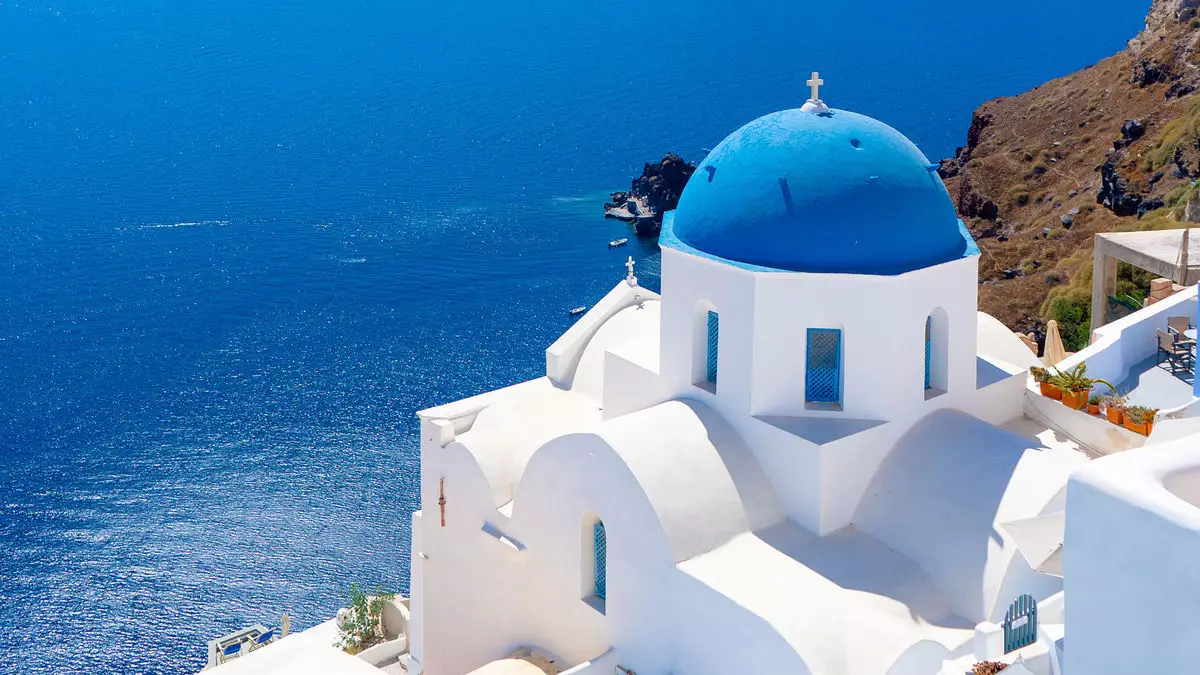As Santorini gears up for its highly anticipated summer season, the whispers of early-year seismic activity still linger in the ears of prospective travelers. This picturesque island, renowned for its breathtaking sunsets and azure waters, is confronting a wave of negative publicity created by a flurry of minor earthquakes that struck from late January. While the seismic disruptions caused no significant damage or casualties, they did rattle the confidence of potential visitors during a crucial booking period. Discussing these challenges, Markos Chaidemenos, managing director of Canaves Collection, drew a striking parallel, labeling the situation a “PR disaster” rather than a natural disaster—a statement that resonates deeply with the tourism community’s current plight.
The island’s tourism stakeholders are not merely sitting idle. Quick to respond, hotel operators and travel agents are coming together to launch campaigns that reinforce the message that Santorini is, indeed, open for business. The goal is clear: to eradicate the negative perceptions emerging from the unflattering headlines and reassess how echoing concerns may affect reservation flow. Contrary to worst-case scenarios, however, the local authorities’s responses illustrate a determined effort to maintain the status quo of this beloved destination.
The Impact of Earthquake Woes on Bookings
In the wake of the seismic activity, the initial fears about the safety of Santorini fostered hesitance among travelers. Although cancellations did not surge dramatically, the volume of new reservations noticeably dwindled. Chaidemenos reported that “January, February, and March are critical months for summer bookings,” underscoring the timing of the earthquakes’ occurrence as a detrimental blow to the island’s tourism ecosystem.
While lingering concerns could have spelled disaster, the community’s efforts to communicate safety and normalcy have started to bear fruit. The momentum shifted positively as Greece’s tourism minister, Olga Kefalogianni, reassured the public about the resilience of the island’s tourism infrastructure. “Life on the island continues as usual,” echoed George Pitsinelis, managing director of Magma Resort, marking a clear pivot in sentiment.
The re-opening of the tourism season was marked by the arrival of the first cruise ship on March 23—a welcome sign that the tides might be turning. Such development not only enhances the vibrancy of Santorini but also serves as a catalyst for optimistic future projections, as hoteliers become increasingly confident that the adverse tides will smooth out soon enough.
Optimism Amid Economic and Travel Market Challenges
Despite an ongoing dip in bookings, the overall sentiment continues to tilt towards optimism among local operators. Chaidemenos expressed his confidence, indicating signs that the current wave of reservations is beginning to show promise, stating that “the pickup is picking up.” This renewed vigor is vital to rekindling the passion for travel that has allowed Santorini to flourish over the years.
Travel advisors are also noticing a subtle yet promising resurgence in new bookings, indicating that the reputation of this Greek gem is beginning to rebound. Christos Stergiou, CEO and founder of TrueTrips, noted that while initial hesitancy was palpable, clients have largely remained committed to their trips. With adaptability ingrained in the ethos of the industry, agents like Katie Brown from Travelmation have been reassuring clients to wait and monitor the situation closely without succumbing to unnecessary panic.
However, the travel landscape is not without its complexities. Greek tourism is facing broader market influences beyond seismic concerns, including rising flight costs and post-pandemic shifts in traveler preferences. As travelers deliberate over their choices, destinations less frequented are seeing an uptick in interest. This evolving landscape urges stakeholders in Santorini to be proactive, pivoting their offerings and communications to address these economic challenges.
Innovative Strategies for Survival and Growth
In an era when spontaneity meets uncertainty, the hoteliers in Santorini are adopting innovative strategies to harness demand. With initiatives such as special packages and price reductions, hotels are workshopping new avenues to entice travelers, including enticing offers like “Stay three nights, get a fourth free.” This adaptability not only signals an understanding of market demands, but it also affirms the commitment of Santorini’s hospitality sector to sustain its competitive edge in the face of adversity.
Looking ahead, the shifts in traveler behavior are encouraging local businesses to rethink traditional peak season paradigms. As tourism patterns evolve, hoteliers find themselves pivoting strategies away from the conventional July and August peaks towards a broader embrace of trips in June and September. This awareness of shifting visitor trends reveals a nuanced understanding of the current market dynamics.
As Santorini looks to the future, the key will be in sustaining its rich heritage while embracing a new era of traveler desires, reinforcing the island’s identity as one of the crown jewels in the Aegean, while ensuring it remains a welcoming and safe haven for the world’s wanderers. The island’s vibrant spirit, coupled with innovation and resilience, provides a beacon of hope—suggesting that even amidst challenges, there is a bright path forward.


Leave a Reply